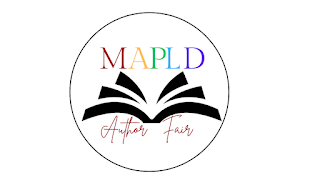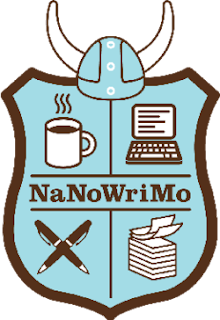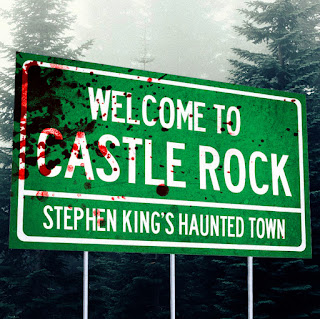In this sweet spot between Christmas and New Year's Day, all my main activities reach a kind of lull, providing an opportunity to dive back into some things that I have neglected for a while (like since the last post-Christmas lull). Unfortunately, while this is a nice diversion from the real world, sometimes I dive in a little too aggressively, finding myself quickly heading into the deep end of one of my winter hobbies like genealogy or home repair. One moment I am packing up the Christmas tree, the next I am rebuilding the shelves in the utility room or digging through the archives surrounding Whitley County in the 1800s. Sure, it's fun, but it becomes a distraction and even a problem if I get so carried away that I can't just jump back into my life once January 2nd comes along.
In case you haven't guessed, this is a big issue with writing sometimes, and it can catch us when we least expect it. We get this urge to write about a crime in a small town, and before we know it we are digging through forensic files, trying to find out if clothing dye can conceal blood stains. (Side note: never look at a writer's Google history. Nothing good comes from doing that.) It's at this point that we realize we are no longer doing our writing, but we have wandered into something entirely different that is actually interfering with what we wanted to do - write about a crime in a small town.This happens a lot - too often, in all fairness. And I see it on a lot of writing forums, where someone is hung up on their writing because they are not sure whether a cop in 1940s Vermont would say, "It's cool," and they can't verify or refute it. Do you see what's happening here? They are letting themselves get dragged away from what they want to do by getting hung up on some other detail that really isn't too important. That's when the rabbit hole opens up, and it's easy to fall into - especially when your mind is fairly distracted.
What drags me into the hole is when I get more time than motivation to do something. Do I want to clean out the utility room? Rarely, if ever. However, if I tell myself I have to do this, my unmotivated self will derail things by turning all my attention to that crappy shelf unit against the wall. If I don't watch myself, four hours later the utility room is twice the mess because I took everything off the crappy shelves and am trying to rebuild them with everything I have available. Needless to say, my utility room suffers when I clean it.
To avoid doing this when I am trying hard to write a piece I am no longer interested in - especially in those cases - I make two statements to myself that I have to keep. Statement #1: During the next two hours, I do not have to write this piece. Statement #2: During the next two hours, I will either write or do nothing - there is no other option. This relieves me from the obligation of writing, yet still makes sure that if I exert any energy, it will be toward writing. If things get tough, I just stop writing and sit there for two, three, five minutes doing nothing. The rabbit hole of researching dialogue might call to me, but I do nothing. Eventually, the writing starts again. And yes, I used to do this during my time doing economic research for a big, fancy company. Sit there at my desk, stare at a screen, and not write a report. It might've been weird for my coworkers if they watched me do this, but no problem; if they were watching me, apparently they needed the distraction.
So don't be afraid to go on an obsessive writing binge now and then. Just make sure you're staying on track and not slipping away from the thing you want to do - write.
And on that note, I am taking New Year's Day off, so my next post will be January 5th, 2024. Happy New Year!























